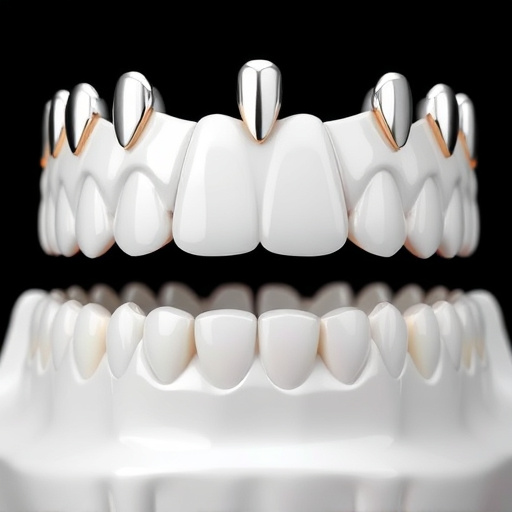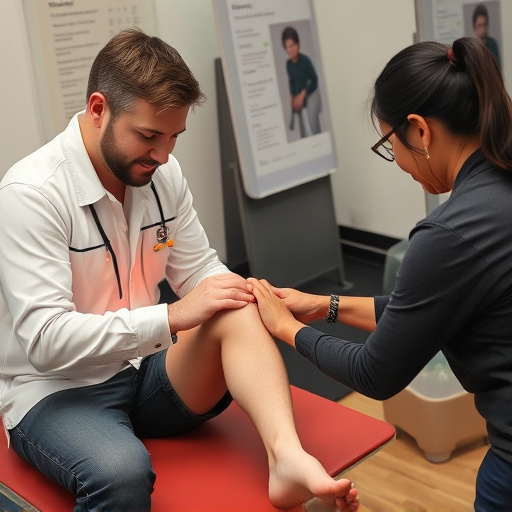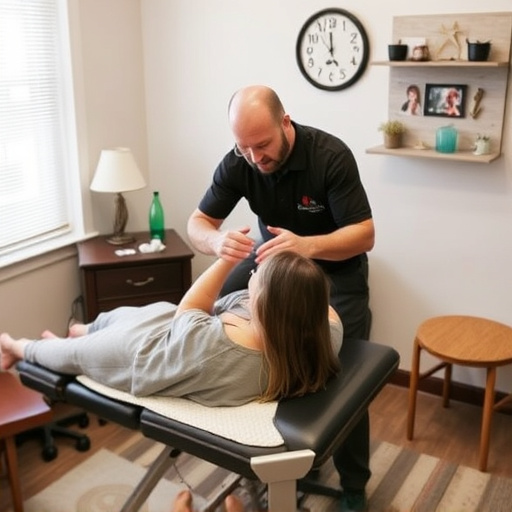Military service members face unique challenges in injury treatment due to high-risk occupations, leading to diverse issues from trauma to PTSD and musculoskeletal problems. Specialized rehab centers provide comprehensive care, offering tailored programs combining physical and spinal therapies for holistic healing. Success is measured beyond physical recovery, focusing on pain management, mobility, cognitive function, and mental health stability, with advanced therapies complementing traditional practices.
Military injury treatment presents unique challenges due to the specific nature of service members’ experiences. Rehab centers play a pivotal role in addressing these complexities, offering specialized care tailored to meet individual needs. This article explores the multifaceted approach taken by these facilities, from understanding the unique challenges faced by military personnel to measuring successful rehabilitation outcomes. By examining how rehab centers adapt their treatment models, we highlight their essential contribution to optimal military injury recovery.
- Understanding Military Injury Treatment Challenges
- How Rehab Centers Tailor Care for Service Members
- Measuring Success in Military Injury Rehabilitation
Understanding Military Injury Treatment Challenges

Military service members face unique challenges when it comes to military injury treatment. The nature of their work often exposes them to high-stress environments, intense physical demands, and potential trauma. Common injuries range from acute trauma like fractures and amputations to chronic conditions such as whiplash, post-traumatic stress disorder (PTSD), and ongoing pain management issues stemming from repetitive motion or previous injuries.
These challenges compound the complexities of military injury treatment. The rapid deployment nature of military operations can disrupt continuity of care, while the unique psychological and social dynamics within military communities may impact recovery. Additionally, the specific needs for neck pain relief and other musculoskeletal issues require specialized approaches tailored to address both physical and emotional well-being. Effective military injury treatment demands a multifaceted approach that considers these complexities.
How Rehab Centers Tailor Care for Service Members

Rehab centers play a pivotal role in the successful treatment of military injuries, offering specialized care tailored to meet the unique needs of service members. These facilities understand the specific challenges faced by military personnel, from physical trauma to psychological wounds, and thus design comprehensive rehabilitation programs accordingly. By integrating various therapeutic approaches, including physical therapy and spinal adjustments, rehab centers enable soldiers to regain their strength, mobility, and mental resilience.
The customization of care is a key aspect; each service member’s treatment plan is individually devised, considering the specific injury, overall health, and personal goals. This personalized approach ensures that the rehabilitation process not only addresses the immediate medical needs but also facilitates a smooth transition back to active duty or civilian life. Whether focusing on physical rehabilitation or addressing complex psychological injuries, these centers are equipped to provide holistic support, ultimately enhancing the chances of successful military injury treatment.
Measuring Success in Military Injury Rehabilitation

Measuring success in military injury rehabilitation is a multifaceted process that goes beyond simply quantifying physical healing. It involves assessing the overall well-being and functionality of service members, ensuring they are not just physically capable but also psychologically resilient. This holistic approach includes tracking progress in areas like pain management, mobility restoration, cognitive function improvement, and mental health stability.
For instance, for a soldier suffering from a pinched nerve, success could mean achieving relief from sharp, persistent pain and regaining full range of motion. In cases involving traumatic brain injuries (TBI), it might involve measuring improvements in memory, focus, and emotional regulation through various cognitive assessments. Additionally, leveraging advanced therapies like shockwave therapy for pain can significantly contribute to the treatment plan’s effectiveness, highlighting the importance of a comprehensive approach that includes both traditional medical practices and innovative treatments like personal injury chiropractic care.
Rehab centers play a pivotal role in enhancing the success of military injury treatment by providing specialized care tailored to the unique needs of service members. Through comprehensive assessment, individualized therapy plans, and ongoing support, these facilities ensure that veterans receive the best possible outcomes. By measuring success not just in physical recovery but also in emotional well-being and reintegration, rehab centers contribute significantly to the overall healing process of military injury treatment.














